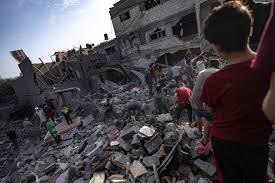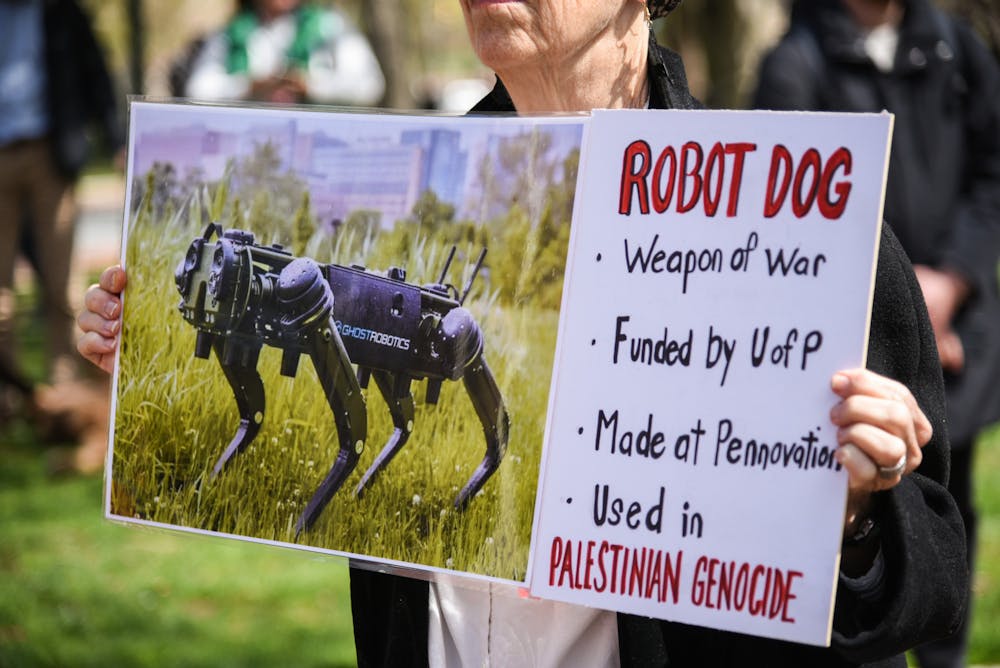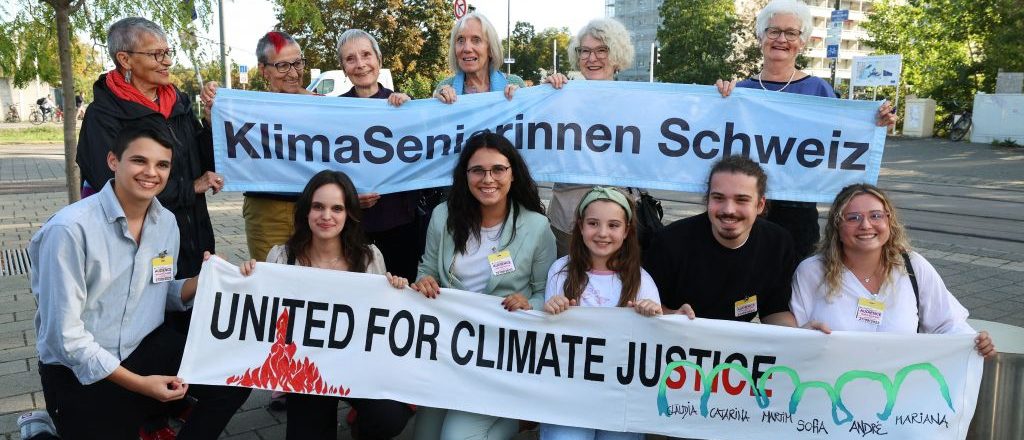Geneva (AFP) – Israel is blocking far more convoys carrying food aid within Gaza, where famine is looming, than convoys carrying other kinds of aid, the UN said Tuesday.
Issued on: 09/04/2024

"Food convoys that should be going particularly to the north, where 70 percent of people face famine conditions, are ... three times more likely to be denied than any other humanitarian convoys with other kinds of material," Jens Laerke told reporters in Geneva.
Israel is facing mounting international pressure to allow more aid into Gaza, which is facing a humanitarian catastrophe six months into the war that erupted after Hamas's unprecedented October 7 attack inside Israel.
Israel meanwhile charges that the main problem is with UN aid distribution within Gaza.
COGAT, the Israeli defence ministry body that manages the flow of aid, said Tuesday on X, formerly Twitter, that "741 humanitarian aid trucks were inspected and transferred to the Gaza Strip over the last 2 days".
"Only 267 aid trucks were distributed by UN aid agencies inside Gaza (out of which 146 carried food)," it said.
"The aid is available, distribution is what matters."
'Meaningless'
Laerke said such comparisons were "meaningless" for a number of reasons.
He pointed out that the trucks screened by COGAT were "typically only half-full. That is a requirement that they have put in place for screening purposes".
The trucks are then reloaded, filling them up fully, before moving on to the warehouses.
"Already there, the numbers will never match up," Laerke said.
He also insisted that "counting day to day and comparing makes little sense because it does not take into account the delays that happen at the crossing and the further movement to warehouses".
He pointed to delays linked to the crossing point opening hours and the fact that Israel has barred Egyptian drivers and trucks from being in the same area at the same time as Palestinian drivers and trucks.
"That means there's not a smooth handover," Laerke said.
The main problem though was then getting authorisation and assurances that aid distribution can go ahead unimpeded, he said.
While Israel complains about UN distribution, "half of the convoys that we were trying to send to the north with food (in March) were denied by the very same Israeli authorities".
Laerke stressed that "the obligation is on the warring parties, and in particular... on Israel as the occupying power of Gaza, to facilitate and ensure humanitarian access does not stop at the border".
"It also pertains to movements inside Gaza."
Peter Beaumont and Kaamil Ahmed
Sat, 6 April 2024

Children queuing for food aid in Rafah: the UN says 1.1 million people are expected to live with catastrophic hunger within three months.Photograph: Anadolu/Getty Images
Two hundred and fifty calories represents two slices of supermarket wholemeal bread sold in the UK. Twelve per cent of recommended nutrition intake. Today in northern Gaza, already in the grip of a “catastrophic” level of hunger as defined by the UN, it represents an entire day’s calorific intake.
Six months into Israel’s war against Gaza, which followed Hamas’s brutal surprise attack on southern Israel’s border communities on 7 October last year which killed 1,200 people, most of them civilians, and saw almost 250 others taken hostage, acute hunger has become pervasive in the coastal strip.
For those who have money, food is in perilously short supply. For those with none – and with Israel, according to UN officials and other agencies, having obstructed the delivery of humanitarian aid for months – finding sustenance has become a matter of life and death.
According to the IPC, the UN-backed hunger-monitoring mechanism, 1.1 million people, half of Gaza’s population, are expected to live with catastrophic hunger within three months if the violence does not escalate.
“Before the war we were in good health and had strong bodies,” one mother recently told the British-based aid agency Oxfam. “Now, when I look at my children and myself, we have lost so much weight. We try to eat whatever we find, edible plants or herbs, just to survive.”
Another mother of six echoed this account to the World Health Organisation, explaining that in the markets wild plants are mainly available at high prices with “no vegetables, no fruits, no juice… no lentils, no rice, no potatoes or eggplants, nothing”, leaving many to survive by eating mallow, a common leafy weed. In a ruined and besieged Gaza, threatened constantly by bombs, artillery and drones, life is defined by a refrain repeated by many. “I’m still alive. I’m still breathing.”
“I don’t know if I still feel anything other than fear, sadness and frustration,” says Mohammed Mortaja, one of hundreds of thousands who have been displaced to the southern city of Rafah, even now a place under threat of a new Israeli offensive.
“Every morning the sun rises and you are alive. Your daily journey is to remain alive – between the search for water and food and escaping from the bombing and occupation.”
Mortaja says he is completely focused on survival and no longer pays attention to the news. After six long months, hope, too, has been set aside, replaced by a numb sense of dislocation.
“I’m no longer tempted by words like truce or ceasefire. I don’t care about anything – I just search for what can satisfy my hunger and my thirst and I wait anxiously for my death.”
More than 33,000 Palestinians have been killed in Gaza, including more than 13,000 children, according to Gaza’s health ministry.
In half a year of violent conflict, that in turn followed years of an Israeli blockade of the coastal strip which served more to strengthen Hamas than to undermine it, Gaza is defined today more by what has been lost than what remains of a once-vibrant society.
Apartment blocks and whole neighbourhoods have been flattened. Hospitals have been reduced to ruins, now roamed by dogs and stinking of sewage. Universities have been blown up and agriculture destroyed. Electricity and with it the ability to process potable and waste water has been fatally disrupted, contributing to the rampant spread of disease.
As of last month, satellite images analysed by the United Nations Satellite Centre concluded that 35% of the Gaza Strip’s buildings have been destroyed or damaged in the offensive. Life itself has been atomised as the war has driven over 80 percent of the population of 2.3 million out of their homes to seek shelter mainly in the south in overcrowded and unsanitary conditions.
Aid deliveries have been throttled by Israel’s closure of land crossings into Gaza, while recent air drop operations are limited in scale and have on several occasions led to deaths after problems with parachute failures and aid dropping into the sea.
The question for Gaza is where the war goes from here. An avalanche of international condemnation of Israel for its killing of seven aid workers from the World Central Kitchen charity last week in a protracted drone strike that hit their cars, one after the other, follows anger at the high and escalating death toll and a growing famine.
And while Israel, under US pressure following the aid worker deaths, has agreed to open more border crossings to allow in more aid, some international officials, including the EU foreign policy chief, Josep Borrell, believe it is too little and too late to prevent starvation.
“Israel and its allies must ensure that aid can now flow freely to avert a famine, and that there will be a protection system for humanitarian workers that guarantees our security. Most of all we need protection for Palestinian civilians, who have been indiscriminately killed during these last six months,” said Jan Egeland, the Norwegian Refugee Council’s secretary general.
Alongside the threat of famine, the biggest question is what happens to Rafah, home to 1.5 million people, which Israel’s prime minister Benjamin Netanyahu says that he plans to attack despite the objections of Washington and other allies.
Ahmed Masoud, a Gazan human rights activist now living in Rafah after being displaced six times over the past six months – a typical experience – says he has lost 40 of his friends, his home and his job. Now he fears losing his mental health.
“All we think about is how to stay alive and struggling to get water and food. Once the night comes, we think more about being killed - especially because we hear 24/7 the sound of Israeli warplanes, especially the drones,” says Masoud, who describes a constant battle to keep his mental health which he fears may not survive the war.
“I’m so lucky that I still have my mind and I haven’t lost it yet.”
But Rafah now is no longer a safe zone – though it has never been exempted from airstrikes – and the population says rumours have built of a looming Israeli invasion.
“Everything is destroyed around us. We feel that at any moment now they will enter Rafah,” said another Palestinian living in the city, who did not want to be named. “We are waiting to evacuate Rafah at any moment. We will probably go towards the sea, to the beach.”
Masoud says everyone in Rafah is waiting for an invasion but they do not know where to go.
The corrosive and all-pervading sense of fear has driven those with contacts abroad to issue desperate pleas to borrow money to pay the heavy bribes required by Egyptian “brokers” – sometimes amounting to tens of thousands of dollars for a single family – to escape across the border.
“The American administration wants a clear plan to evacuate people to safety. To be honest, I don’t know what ‘safe area’ they’re talking about,” he says. “It’s a really big fear but we’ve got used to being killed, to hearing sad news, so we have nothing to lose. So here we are, waiting for our destiny.”
Despite the growing international pressure to stop the fighting, including the recent passage of a resolution to that effect in the UN Security Council, ceasefire negotiations centred on a release of the dozens of Israeli hostages held by Hamas – many of whom are believed to have died in captivity – remain stuck despite the scale of the suffering.
Hamas says Israel’s forces must leave Gaza. Israel says it must finish its destruction of Hamas.
Yet despite Israel’s claims to have killed around 13,000 Hamas fighters and dismantled the group’s military capabilities across most of Gaza there is no sign that Hamas is finished, with its fighters regrouping in areas where Israel previously declared victory.
Michael Milshtein, a former high-ranking Israeli military intelligence officer who is an expert in Palestinian studies at Tel Aviv University, says Israel faces two unappealing choices: accept a hostage and ceasefire deal that acknowledges Hamas has survived, or step up the military campaign and conquer Gaza in the hope that Hamas will eventually be destroyed.
He said expectations that the Israeli military’s current approach can destroy Hamas or force it to surrender are “wishful thinking”.
Amos Harel in Israeli newspaper Haaretz was even more blunt, describing a stagnated war, burnt-out troops and an ever-increasing insensitivity to Palestinian lives where “the notion that ‘there are no innocents in Gaza’” is rife among the combat troops.
“Today it is clear to everyone – other than blind followers – that the promises of ‘total victory’ that prime minister Benjamin Netanyahu made every other day are totally worthless,” he wrote.
For now, all that can be said with any certainty is that a war launched with unrealistic expectations will drag on longer yet amid Israel’s growing international isolation.
And that those paying the heaviest price are Gaza’s Palestinian civilians.
'Unbearable': Gaza families try to identify Al-Shifa dead
Gaza City (Palestinian Territories) (AFP) – Palestinian nurse Maha Sweylem came to the gutted shell of the Al-Shifa hospital in northern Gaza hoping yet dreading for news of her husband, whom she said was a doctor there.
Issued on: 09/04/2024 -

World Health Organization teams arrived at what was Gaza's biggest hospital Monday to help identify the bodies that litter the ruins.
The Israeli military said it battled with Palestinian militants there during two weeks of fierce fighting last month, with the WHO saying that patients were trapped inside.
Sweylem told AFP that she had not seen her husband, Abdel Aziz Kali, since he was arrested by the Israel military during the assault. She does not know if he is dead or alive.
The nurse recalled how the Israeli army had quickly surrounded the hospital last month and then used loudspeakers to order that "'everyone must surrender. Game over.' Then, they started shooting at all the entrances, preventing anyone from moving.
"I spent four days there with my two little daughters, without any food or drink. They cried from hunger. When they arrested my husband, he had not eaten for three days," she said.
AFP asked the Israeli army if they know of Kali's whereabouts, but there was no immediate response.
The Israeli military have long accused Hamas and Palestinian militants of using hospitals and other medical facilities as hideouts and command posts, and their patients as shields.
Motasem Salah, director of the Gaza Emergency Operations Centre, said the scenes Monday at the sprawling medical centre were "unbearable".
"The stench of death is everywhere", he said, as a digger went through the rubble and rescue workers pulled decomposed bodies from the sand and ruins.
Salah said Gaza lacked the forensic experts needed to help identify the dead or determine what had happened to them. So they are relying on "the expertise of the WHO and OCHA (UN humanitarian office) delegation."
They are trying "to identify the decomposed bodies and the body parts that were crushed" from wallets and documents, he said.
Relatives were also there "to ascertain the fate of their sons, whether they have been killed, are missing, or have been displaced to the south," said Amjad Aliwa, the head of Al-Shifa's emergency department.
He said they wanted to identify "their sons and ensure they receive a proper burial. However, we lack the necessary equipment, and time is not on our side. We must complete the job before the bodies decompose," Aliwa told AFP.
'Partially buried, limbs visible'
Salah said the psychological impact of this "unwatchable" process on the families is unbearable, in another WHO video from the scene shared with AFP.
 The Israeli military have long accused Hamas and other Palestinian militants of using hospitals as hideouts and command posts © - / AFP
The Israeli military have long accused Hamas and other Palestinian militants of using hospitals as hideouts and command posts © - / AFP"Seeing their children as decomposing corpses and their bodies completely torn apart is a scene that can't be described. There are no words for it."
Several worried relatives walked among what the WHO said were "numerous shallow graves" outside the devastated emergency department and the administrative and surgical buildings.
"Many dead bodies were partially buried with their limbs visible," it said in a statement after its first visit to the site Friday.
"Safeguarding dignity, even in death, is an indispensable act of humanity," the WHO insisted.
A "place where life was given, is now a place that now reminds (us) only of death," said Athanasios Gargavanis, the WHO surgeon leading its mission on Monday. "Hospitals should never be militarised."
For the past six months, Israel has relentlessly bombarded the besieged, densely populated Gaza Strip, killing at least 33,360 people, mostly women and children, according to the health ministry in the Hamas-run territory.
The Gaza war began after an unprecedented cross-border attack by Hamas fighters on October 7 that resulted in the death of 1,170 people in Israel, mostly civilians, according to an AFP toll from official Israeli figures.
AFP video images from Al-Shifa on Monday showed the remains of several bodies being recovered from one of the courtyards of the hospital and put into body bags.
For the son of one of the missing, Ghassan Riyadh Kanita, whose 83-year-old father Riyadh had taken refuge in the hospital, the news was not good.
"My nephew called us and he told me that they found the body at the entrance of Al-Shifa. We came and they told us that they found the body."
© 2024 AFP





 Gazans returning to the city of Khan Yunis confronted mounds of rubble where houses and shops once stood © - / AFP
Gazans returning to the city of Khan Yunis confronted mounds of rubble where houses and shops once stood © - / AFP












